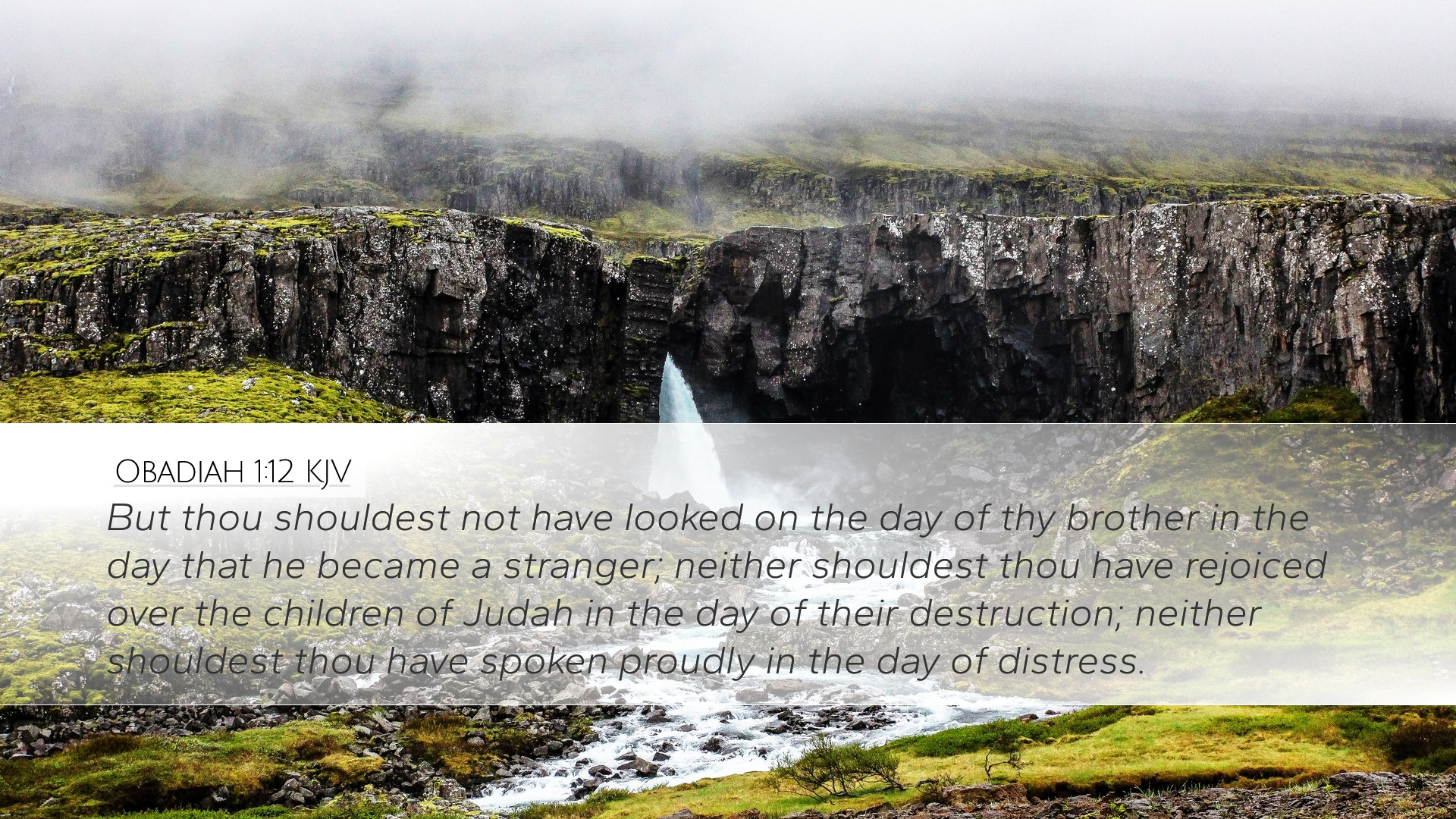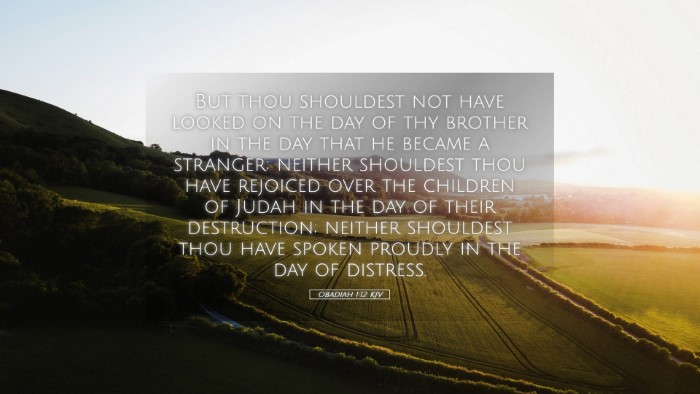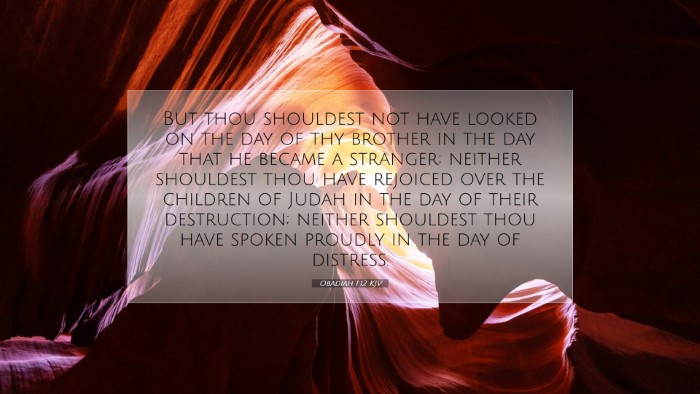Commentary on Obadiah 1:12
Verse: "But you should not have gazed on the day of your brother in the day of his captivity; nor should you have rejoiced over the children of Judah in the day of their destruction; nor should you have spoken proudly in the day of distress."
Introduction
The Book of Obadiah is the shortest book in the Old Testament, consisting of a single chapter comprising 21 verses. It addresses the nation of Edom and their prideful behavior toward Israel. Obadiah prophesies the downfall of Edom for their complicity in the destruction of Jerusalem and their indifferent, malicious attitude toward the suffering of the Israelites.
Context and Historical Background
The historical context of Obadiah is essential for understanding the prophet's message. The Edomites, descended from Esau, were longstanding adversaries of the Israelites, descended from Jacob. At the time of the Babylonian conquest of Jerusalem, the Edomites chose to stand by as onlookers, reveling in the misfortunes of their brothers—the people of Judah. This particular verse (Obadiah 1:12) emphasizes their inappropriate response of gloating rather than showing compassion.
Theological Implications
This verse intersects with profound theological ideas about brotherhood, moral responsibility, and divine justice. The Edomites’ actions are a stark warning against the failure to support those in need, particularly those who share a common heritage or faith. It challenges the reader to reflect on their actions and attitudes towards those who suffer, implying a call to empathy and solidarity with God’s people.
Insights from Matthew Henry
Matthew Henry, in his commentary, emphasizes the ethical implications of the Edomites' sin. He notes that their behavior reflects a failure to act as true brothers. Henry points out that the act of looking on with glee as Judah suffers is emblematic of pride and heartlessness. He interprets the verse as a divine reprimand, warning that observing the suffering of a brother without compassion is a significant moral failure. Henry’s perspective serves as a reminder that God calls His people to be compassionate and supportive rather than indifferent or scornful.
Albert Barnes’ Perspective
Albert Barnes provides a more socio-political context to the verse, shedding light on the Edomites' national identity. He argues that their prosperity was built upon the downfall of Judah, which God views as an affront to His justice. Barnes explains that the Edomites not only witnessed but also celebrated the collapse of Judah, which is addressed directly in this verse. He urges readers to consider the consequences of actions born from hatred and pride, asserting that those who align themselves with injustice will ultimately face God's retribution.
Understanding Adam Clarke
Adam Clarke discusses the psychological aspect of the Edomites' behavior, suggesting that their rejoicing in Judah's calamity comes from a place of deep-seated rivalry and animosity. Clarke points out that this disposition towards their brothers had been ingrained due to a long history of conflict and resentment. He highlights that such bitterness only serves to deepen the Divine judgment against them, as God observes not only actions but the motivations behind them.
Lessons for Today
This commentary on Obadiah 1:12 elicits several important lessons for contemporary readers:
- Empathy Over Indifference: The passage encourages believers to cultivate a heart of compassion instead of indifference. Observing suffering and doing nothing to help is viewed as a serious moral failing.
- The Importance of Brotherhood: It serves as a reminder that believers are called to view one another as brothers and sisters, linked by faith and calling to support each other.
- Consequences of Pride: The Edomites' pride led to their downfall, which prompts reflection on the perils of pride in one's own life.
- God’s Justice: The text also reassures us of God's divine justice. Those who rejoice in the suffering of others will answer to God for their actions.
Conclusion
Obadiah 1:12 serves as a poignant reminder of the necessity of empathy and solidarity within the community of believers. By examining insights from ancient commentators such as Matthew Henry, Albert Barnes, and Adam Clarke, contemporary readers are challenged to reflect on their actions and attitudes towards others, particularly in times of trial. This verse challenges each follower of Christ to uphold a strong moral compass, eschew pride, and fulfill the mandate of love and support towards one another.


